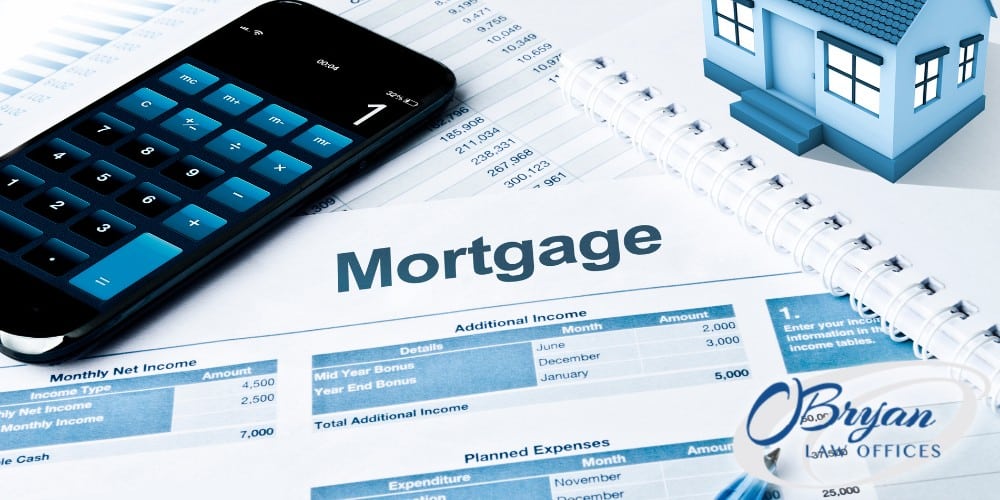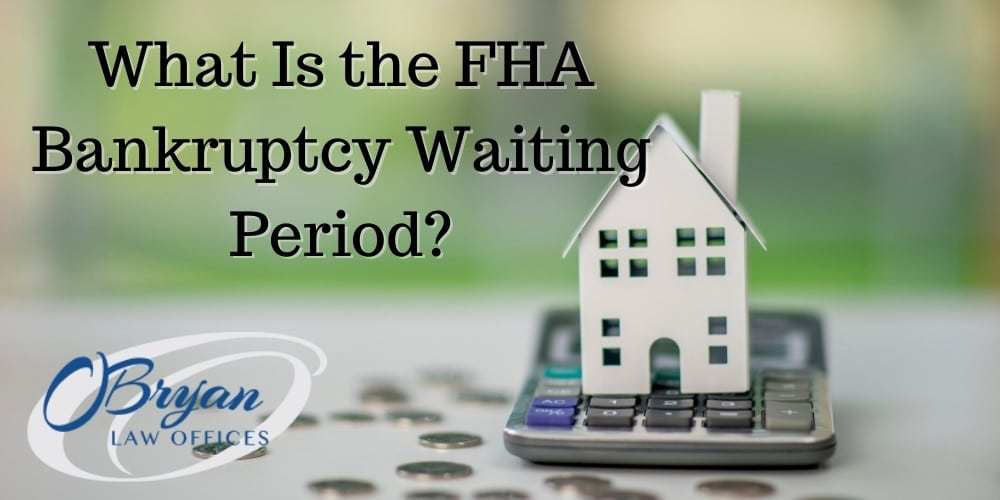In most cases, you must wait a specific period after receiving your bankruptcy discharge before qualifying for an FHA loan. This timeline is designed to give you time to rebuild your credit and show lenders you’ve regained financial stability. The waiting period begins on the discharge date, not the filing date.
Understanding this waiting period can help you plan your next steps toward homeownership. For personalized guidance, call (502) 339-0222 to speak with a trusted Louisville bankruptcy lawyer and schedule your free consultation.
What Is an FHA Loan?
For one reason or another, let’s say that you currently can’t qualify for conventional mortgage loans. Instead, you may qualify for loans from other mortgage lenders. Examples of these alternatives include VA loans, USDA loans, and FHA loans. An FHA loan is one that is backed by the Federal Housing Administration (FHA).
These loans are often popular with those buying their first home, as they require lower credit scores and down payments compared to conventional loans. An FHA-insured mortgage loan is administered and underwritten by third-party lenders.
An FHA loan can come in either 15-year or 30-year terms, and they have fixed interest rates. The intent behind these loans is to allow borrowers to become homeowners when they don’t qualify for private mortgage loans.
So, what’s the catch? With an FHA loan, you’ll also need to pay for FHA mortgage insurance. This protects lenders in the event that the borrower defaults. You’ll need to pay both an upfront mortgage insurance premium and an annual mortgage insurance premium. The annual premium is paid monthly.
How to Qualify for an FHA Loan
In order to qualify for an FHA loan, you’ll need to meet the following criteria.
- Your credit report shows a FICO score between 500 and 579, and you can put 10% down. Or, you have a score of 580 or higher and you can put 3.5% down.
- You have an employment history from the past two years that is verifiable.
- You’re using the loan to finance your primary residence.
- You have income that is verifiable.
- The property has been appraised by an FHA appraiser.
- The property meets HUD guidelines.
- You have a front-end debt ratio of no more than 31% of your gross monthly income.
How Can I Get an FHA Loan After Bankruptcy?
If you’re filing for bankruptcy, you may still qualify for an FHA loan by meeting specific credit and repayment plan requirements. Lenders will evaluate your financial behavior after bankruptcy to determine if you’ve shown responsibility and stability. The exact process depends on the type of bankruptcy you filed.
- Chapter 7 bankruptcy: You must have re-established good credit. A mortgage lender will review your current financial standing and any new credit you’ve taken on since the bankruptcy. You’ll also need to provide a letter of explanation to show FHA lenders that your financial situation has improved since filing for bankruptcy.
- Chapter 13 bankruptcy: You must show the lender that you’ve made on-time payments during your Chapter 13 repayment plan for at least one year. You’ll need proper documentation for this, as well as a letter from the bankruptcy court granting permission to apply for a mortgage loan.
How Do I Qualify for an FHA Loan After Bankruptcy?
Now you know the requirements, but how do you meet these qualifications? Below, we outline some important tips to help you meet FHA guidelines for a home mortgage loan.
- As soon as possible, start saving your money. Saving money is already a good habit, but it’s especially helpful if you’re trying to qualify for loan programs or a down payment. Try to save up enough money for closing costs, your down payment, and an emergency fund.
- To improve your credit score, try getting a secured credit card. With this card, make sure that you’re utilizing the best practices for building credit. This includes making on-time payments for your bills, keeping your credit utilization rate low, and not taking on a lot of new debt.
- In other words, show the loan officer that you have improved your financial situation, as well as learned how to avoid problems in the future.
FHA Bankruptcy Waiting Period
As we mentioned previously, the waiting period for a new FHA loan after filing bankruptcy varies depending on which chapter you filed. We’ll outline the different waiting periods below.
FHA Bankruptcy Waiting Period After Chapter 7

There is a two-year waiting period for an FHA loan application after you receive a Chapter 7 bankruptcy discharge. The two-year clock begins counting down on your discharge date. Use the next two years to improve your credit score, avoid late payments, save up extra cash, and improve your credit profile overall.
FHA Bankruptcy Waiting Period After Chapter 13
There is at least a twelve-month waiting period to apply for an FHA home loan after your Chapter 13 discharge date. Additionally, you must show that you have a positive payment history, as well as written permission from the bankruptcy court to take out a mortgage loan after bankruptcy.
Exceptions to the FHA Bankruptcy Waiting Period
Importantly, exceptions exist for the Chapter 7 waiting period. In order to reduce your Chapter 7 waiting period to 12 months, you must meet the following requirements.
- Prove that you only filed bankruptcy because of extenuating circumstances, which means that it was beyond your control.
- Show that you are responsible with your finances during that 12-month period.
- Attend a HUD (Housing and Urban Development) approved counseling course.
So, what qualifies as extenuating circumstances? We list some examples below.
- You lost at least 20% of your income for a six month period.
- Natural disasters or a severe illness led to your financial troubles.
- The main income earner in your household passed away, which greatly affected your ability to pay bills.
FHA Bankruptcy Waiting Period Overview
To make it easier to understand the different timelines and requirements, here’s a clear overview of the FHA waiting periods based on your specific financial situation. This includes standard bankruptcy scenarios as well as other common events like foreclosure, short sale, and car repossession. Reviewing this table can help you plan your path toward qualifying for an FHA loan more strategically.
| Bankruptcy Type | Standard Waiting Period | Early Exception Option | Key Requirements | Notes |
|---|---|---|---|---|
| Chapter 7 | 2 years after discharge | 12 months | - Prove extenuating circumstances - Show financial responsibility - Complete HUD-approved counseling |
Most common for liquidation bankruptcy |
| Chapter 13 | 12 months (during plan) or after discharge | N/A | - Positive payment history - Court approval to apply |
May qualify before discharge if conditions are met |
| Foreclosure | 3 years after foreclosure date | 1 year (in rare cases) | - Extenuating circumstances - Re-established credit |
Separate from bankruptcy timelines |
| Short Sale | 3 years after short sale | Case by case | - Good payment history since sale | Must show recovery and stable income |
| Car Repossession | Varies by lender | Case by case | - Re-established credit - Satisfactory payment history |
Does not automatically disqualify |
How Long Does It Take to Get a Mortgage After Bankruptcy?
Another factor that influences your waiting period is the loan type. For FHA loans, we know that the waiting period is either two years (Chapter 7) or twelve months (Chapter 13). If you’re planning on taking out a conventional loan, you’ll have a four-year waiting period unless you can show extenuating circumstances. If you’re looking to get a VA loan, you’ll need to wait two years after Chapter 7 or one year after Chapter 13. For a USDA loan, you’ll need to wait three years after Chapter 7 or one year after Chapter 13.
FHA Mortgage Rates After a Bankruptcy
A mortgage application through the FHA tends to be much more flexible than conventional loans. You can get FHA home loans for 15 or 30-year terms. These terms can be fixed or adjustable. We highly recommend speaking with one of our attorneys to learn more about FHA financing before you complete your mortgage transaction.
FHA Foreclosure Waiting Period
The waiting period also changes depending on whether or not you have foreclosed on a home. If you underwent a foreclosure, you will need to wait three years after your foreclosure date in order to apply for a new FHA loan.
Contact O’Bryan Law Offices Today
Buying a home after chapter 7 or chapter 13 can feel overwhelming, but understanding your FHA loan options makes the process smoother. Our team can guide you through waiting period requirements, explain how your bankruptcy was caused impacts your eligibility, and help you take practical steps to rebuild your credit. From discharge to loan approval, we’re here to support you every step of the way.
Don’t navigate this alone—get experienced legal guidance from a trusted Louisville bankruptcy lawyer. Call (502) 339-0222 today to schedule your free consultation and start planning your path to homeownership with confidence.
Yes, the type of bankruptcy filed—either chapter 7 or chapter 13—directly impacts your waiting period requirements. Generally, Chapter 7 requires a two-year wait after discharge, while Chapter 13 may allow you to apply after 12 months of on-time payments with court approval.
A dismissal can extend your waiting period before you’re eligible for an FHA loan. In most cases, a two-year wait applies after dismissal, and lenders will want to see that you’ve re-established credit and maintained good financial habits.
To qualify for a mortgage after a bankruptcy filing, you’ll need to rebuild your credit, save for a down payment, and meet FHA lender guidelines. Demonstrating steady income and financial stability is key to showing you’re ready for homeownership.
Yes, FHA loans typically have more lenient credit score and down payment requirements compared to conventional loans. This makes them a strong option for borrowers recovering from bankruptcy or other financial challenges.
Both FHA and VA loans can offer more flexible terms that may help borrowers avoid foreclosure by keeping monthly payments manageable. Maintaining a steady payment history and communicating with your lender early can also prevent financial setbacks.



